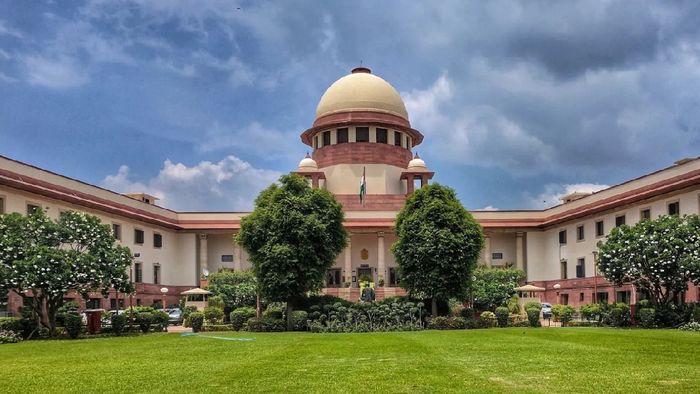Supreme Court criticizes Assam government over 'abysmal conditions' at Matia transit camp
The Supreme Court of India expressed concern over the deplorable living conditions at the Matia Transit Camp in Assam, where foreign nationals are detained. A bench led by Justice Abhay Oka and Justice A.G. Masih characterized the situation as “far from being satisfactory,” referencing a report from the State Level Services Authority (SLSA) that exposed critical deficiencies in essential amenities.

- Nov 04, 2024,
- Updated Nov 04, 2024, 11:52 AM IST
The Supreme Court of India expressed concern over the deplorable living conditions at the Matia Transit Camp in Assam, where foreign nationals are detained. A bench led by Justice Abhay Oka and Justice A.G. Masih characterized the situation as “far from being satisfactory,” referencing a report from the State Level Services Authority (SLSA) that exposed critical deficiencies in essential amenities.
The Court’s observations underscored the absence of vital services and infrastructure within the camp. Justice Oka noted, “No facility is in place. No vocational training center, no distance education. A female doctor is not available,” highlighting the lack of healthcare provisions for female detainees and the unavailability of educational and vocational resources, which are crucial for rehabilitation.
In response to these alarming findings, the Supreme Court ordered the Secretary of the relevant department within the Assam government to undertake an immediate inspection of the transit camp. The Secretary is mandated to convene a meeting with pertinent authorities to ensure the establishment of all necessary facilities within one month. Furthermore, the Court has set a deadline for a comprehensive report on the improvements, to be submitted by December 9, when the case will be revisited.
Also read: Meghalaya pressure group opposes forest land transfer for industrial development
Located in Assam’s Goalpara district, the Matia Transit Camp is designated as India's largest detention facility for individuals declared as foreign nationals under the Foreigners Act of 1946. Operational since 2021, the camp was intended to serve as a humane alternative to traditional detention methods. However, it has faced ongoing criticism for its substandard living conditions, raising questions about the welfare of detainees who include those who have completed their sentences and individuals classified as foreign nationals by legal tribunals.
Covering an area of approximately 20 bighas (about 28,800 square feet), the facility was constructed at a cost of Rs 46.51 crore and became operational in early 2023. It consists of 15 buildings, including two specifically designed for women, each capable of accommodating up to 200 inmates. The camp has a total capacity of 3,000 individuals, with provisions for 400 female detainees.
As of November 2024, the camp housed 224 detainees, comprising 210 Muslims and 14 Hindus, among whom were 36 children. Despite its extensive infrastructure, the Supreme Court has pointed out serious deficiencies in living conditions, including inadequate water supply, insufficient sanitation facilities, and poor food quality.
In light of the Court’s concerns, the Assam State Legal Services Authority has been directed to conduct surprise inspections aimed at evaluating and enhancing the conditions within the facility. The SLSA report referenced by the Court highlighted the lack of educational and vocational training opportunities, inadequate healthcare services, and a shortage of female medical staff. Human rights organizations have previously condemned the camp for failing to meet basic living standards, with ongoing concerns regarding nutrition, sanitation, and the psychological support available to detainees, exacerbating their already challenging circumstances.